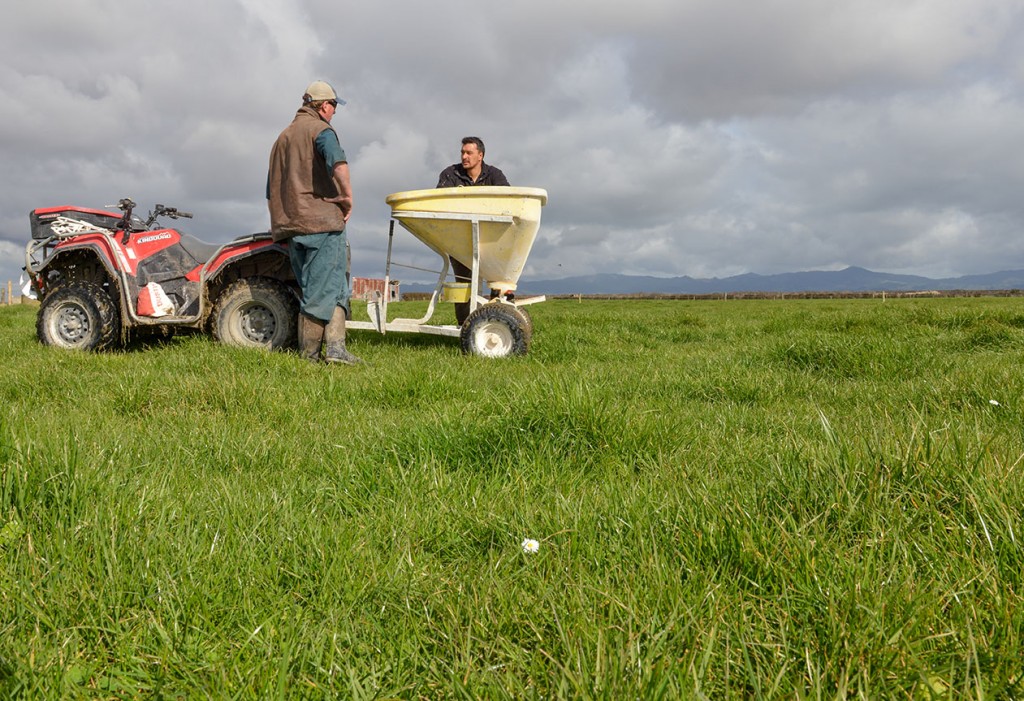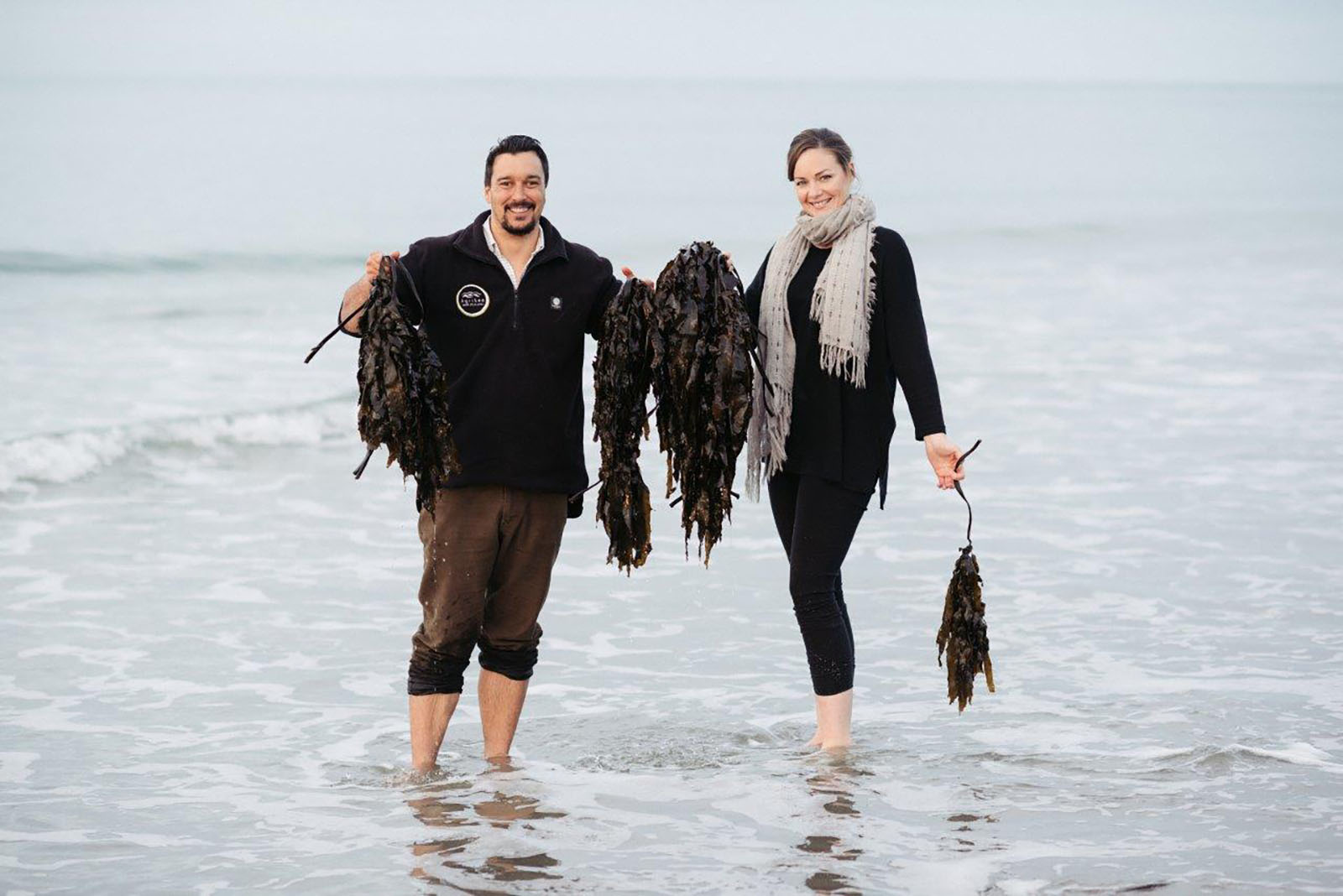A decade ago the viticulture industry responded to international market demand by creating a sustainable NZ wine brand. This industry committed to changing grower practices and moving up the value chain by producing premium products with robust environmental credentials – thereby leveraging their pure advantage.
The conventional dairy sector in New Zealand has continued to focus on high production for the high volume, low- value commodities market. Figures quoted in Waikato Times (Feb 9th 2016) told the story- organic milk powder sells on the international market for more than $14,000 per tonne and in stark contrast conventional milk powder sells for $2,900 per tonne. The international market is demanding high value sustainably produced food and the business case for a market led approach in the dairy sector is urgent.
The intensification of dairying relies on high chemical input strategies contributing to a number of factors that reduce on-farm profit including animal health issues such as; high empty rates, retained membranes, laminitis, high Somatic Cell Count(SCC) and mastitis. The resulting bills to mitigate these health problems carve deeply into economic farm surplus (EFS). Ironically most animal health problems are a direct result of nutritional deficiency and when animals graze on high chemical input pastures the root cause of these nutritional problems comes from soil that is simply not functioning.
Production over profit is economically unsustainable, particularly in the current low payout period, but high chemical inputs are also environmentally unsustainable. The clamor around environmental issues, such as clean water, will result in tighter on-farm regulatory rules becoming the norm. The biggest single factor to reduce chemical run-off into waterways is healthy functioning soil. Over 60% of NZ rivers are unfit for swimming, let alone drinking. Most of the effort to date has been focused on mitigating the impacts of high input farming on water quality (riparian buffers etc) while information on the effects of changing farm practice to prevent the pollution in the first place is lacking .
The United Nations declared 2015 as the Year of Soil.
FAO Director-General, José Graziano da Silva recently described soils as “a nearly forgotten resource”
Well-functioning soils are critical for global food production and a healthy environment, but we are not paying enough attention to this important silent ally. Soil degradation leads to compaction and loss of water-holding capacity, increasing the movement of sediment, manure and chemicals to rivers. The low levels of biological activity observed in degraded soils also result in a plethora of weed, pest and disease problems. These factors not only reduce the profitability of farming, but high-analysis fertilisers and other chemicals used in an attempt to mask the problems created by reduced soil function impact on the wider environment, especially ground and surface waters.
AgResearch Professor Richard McDowell recently observed that the Government’s business growth agenda – aimed at doubling primary sector exports by 2025 – had “put researchers under the gun” to achieve the twin goals of improving land and water quality while enhancing primary sector productivity.
But director of Massey University’s Fertiliser and Lime Research Centre, Professor Mike Hedley, says policymakers have made decisions without really knowing the exact changes to farm management needed to achieve these twin outcomes. Hedley believes hard questions need to be asked about the way we farm. He says low returns for some agricultural products signal the need for farmers to look long term and identify more sustainable options.
Dairy farmers need solid information in order to access alternative strategies to high chemical inputs. The biostimulant industry world- wide is growing at 12% per annum – biostimulants are farm inputs that focus on the health of the soil biology – the life in the soil.
One such biostimulant producer, AgriSea New Zealand, is a multi -award winning, Paeroa based, family company manufacturing high quality liquid seaweed concentrates, seaweed solid products, seaweed salt blocks and animal pellets from a fresh NZ seaweed species called Ecklonia radiata . Seaweed is one of the most complex elements known to man and provides a smorgasbord high nutrition ‘feast’ for soil biology, plant and animal health.
In response to United Nations declaring 2015 Year of Soil AgriSea funded Dr. Christine Jones, an internationally renowned soil ecologist, on a tour of NZ speaking to farmers on the topic of how soil functions. Dr. Jones is taking up the position of Head of Research at AgriSea New Zealand in April 2016 to develop a ‘Soils First production System’ for farmers.
The AgriSea ‘Soils First Production System’ research project is aimed at providing high input farmers a safe transition from conventional farming to biological farming. Biological farming principles ensure healthy soil, healthy crops, healthy animals and healthy waterways. The economic and environmental benefits are aligned with the Government’s twin goals.
Although biological farming is not organic it is a bridge to this high value farming sector and becomes a viable choice for individual farmers to make based on solid data. NZ organic dairy farmers are tipped to receive up to double the price for organic milk solids per kg as paid for conventionally produced milk solids. However, the development of a national ‘ Eco Milk’ certificate that guarantees the product has been produced with robust environmental credentials on soil/water friendly farms will give returns to biological farms that are half way between certified organic and chemically produced products. This is a similar model to the three production systems in the egg industry: a) certified organic, b) free range or c) caged eggs. The rapid rise of the Free range category is the market speaking .
To meet the governments’ twin targets of improved export revenue and cleaner water AgriSea are seeking mainstream, high input dairy farms across New Zealand to participate in a three-year leading-edge research project to fine-tune the ‘Soils First’ production system. In addition to satisfying regulatory requirements for reduced chemical inputs, farmers will benefit by receiving regular free soil and herbage tests plus assessments of plant rooting depth and levels of soil biological activity. AgriSea will underwrite production levels in the trial areas. If production drops, they pay.
The AgriSea research is designed to strengthen farm productivity, performance and profitability, improving soil, pasture and herd health while reducing ecotoxicity. The benefits of the ‘Soils First’ production system will be both economic and environmental.

Why soil first?
The science underpinning the ‘Soils First‘ research revolves around the fact that very few soil problems are intrinsic – most are due to the depletion or absence of diverse communities of soil microbes.
Firstly, soil function is strongly influenced by its structure. In order for soil to be well structured, it must be living. Life in the soil provides the glues and gums that enable soil particles to stick together into pea-sized lumps called aggregates.
Well-structured soils with high levels of biological activity are more productive, less prone to erosion and compaction and function more effectively as bio-filters.
Vigorous root systems and relationships with beneficial soil biota are essential for maximising the ability of crop and pasture plants to obtain nitrogen, phosphorus, potassium, sulphur, calcium, magnesium and a wide variety of trace elements including copper, cobalt, zinc, selenium, boron and molybdenum.
Many of these elements are essential for animal health as well as plant resistance to pests and diseases. They also confer resilience to climatic extremes such as drought, waterlogging and frost. Plant function is enhanced when these nutrients are obtained via natural microbial pathways rather than applied in synthetic form.
The single biggest on-farm factor to ensure healthy waterways is to have healthy soil. As rules tighten around environmental factors including compromised waterways, farmers need viable on-farm options.
The AgriSea ‘Soils First Production System’ research project will contribute to New Zealand’s agricultural future by bringing public institutions, private corporations and farmers together to accelerate the transition to more cost effective, environmentally friendly farming systems in a low-risk manner. The NZ Inc. brand needs to become the world leader in sustainable farming – both environmentally and economically.
For further information and/or a copy of the research farm selection criteria, contact AgriSea Research Coordinator Clare Bradley on 0800 SEAWEED or via email at clare@agrisea.co.nz.



Leave a comment